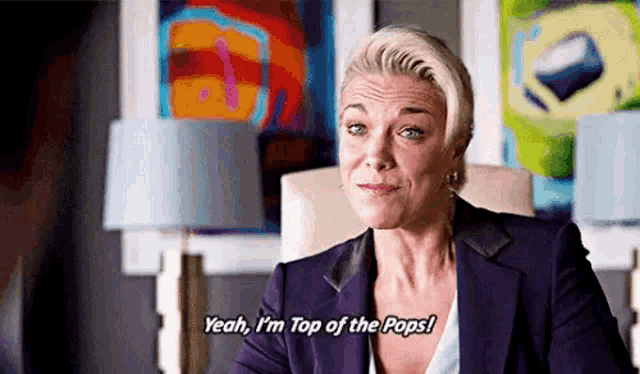OK, folks, huddle up. It’s time to check in on how we’re doing. No stories this week, no local zoning fracas. I don’t have a hot take on Buffalo, Ukraine, or abortion, or at least a new one. All of those things are important, are crises, are existential threats to, well, everything. We have emerged from the pandemic after losing 1 million in the United States alone and 6.3 million worldwide into a loose civil war with white nationalists, a new legal reality in which not just abortion but marriage equality, birth control, and even IVF are uncertain, and, oh yeah, Russia keeps threatening to start a nuclear war if we don’t, I don’t know, stop defending democracies from future hypothetical Russian invasions?
Like that last sentence, it’s a lot. The flags have been at half mast so often over the last few years that they might as well cut off the tops of the flag poles. Also — Ack! — the United Nations has issued a “code red for humanity” because the climate is going a good bit more than squiffy. The doomsday projections that our planet is sozzled, perhaps even soused, are leading many young people to choose not to have children, which is “impacting fertility rates quicker than any preceding trend in the field of fertility decline,” according to the noted sex experts at Morgan Stanley.
But how are you? I mean, how are you really?
Probably, not great. Check out this Forbes headline I just found: “Post-Pandemic Burnout Spurs The ‘Great Resignation’ Among Workers.” It’s from last July. Dr. Anthony Fauci only declared that we were “out of the pandemic phase” last month, and our mental metrics have not improved. “Burnout and stress are at all-time highs across professions,” says the American Psychological Association.
So, let me ask again, how are you, really?
A colleague just put the question to me this way: “Hey, how are *you* doing? And ‘fine’ never counts as a real answer.”
I didn’t say I was fine, and I believe I did so much more convincingly than Hannah Waddingham’s character did in Ted Lasso.
The truth is that things are hard. In yet more evidence of the mainstreaming of Q-Anon, my coworkers and I are regularly called “groomers” now in large part because of an internet hoax, but also because I work for an organization that makes no apologies for protecting and celebrating LGBTQIA+ kids and staff. That comes after teachers and staff got death threats for holding Pride week for kids. There are other stressors — balancing the budget required losing some positions and letting some people go, and for some reason kids misbehave more right before breaks — but the biggest reason for everyone feeling lousy might be that the danger from COVID-19 has abated.
*record scratch*
Did you feel that? That urge to say we’re not out of danger, that numbers are climbing, that we’re inviting a new surge by opening up… All that can be true while still moving from the global pandemic to an enduring endemic phase. Conditions are empirically safer now. There is still danger, but we are not on war footing anymore.
That is precisely why, by the way, a lot of us who have been performing admirably during the years of crisis are now losing their composure. It reminds me of how my kids would cry when they were picked up from day care. They were happy and well-behaved all day long until they looked into the face of a parent come to fetch them, whereupon they’d scrunch up their perfect, gorgeous little mugs and give every appearance that a great injury was being done them. Oh, the giant tears that wet their cheeks.
But it wasn’t the parent that displeased them. The effort of being good all day among their friends exhausted them, and only when the parent showed up did they feel safe putting down their guards.
There are a whole lot of us being picked up from day care now.
So, how are you, really? And don’t say fine. We went over “the fallacy of being fine” last year with Michael Breen, the Iraq combat veteran who urged us not to minimize the strain that this has put on us, always throttling our adrenal glands into the red zone. We’ve been at this for so long that our coping mechanisms are permanent parts of our personalities, and crisis mode has become a familiar status quo.
“At some point I just need to get out of crisis mode. Like I need to feel like it's over. And the longer that you go between chances to stop, the harder it all gets in terms of recovery, and the more encoded all this stuff, this way of living becomes. You're living in a permanent combat mode,” he said. “We're coming up on a year of it. I think COVID is a lot like a tour.”
In the United States, we’re not used to wars being home games. Think of us, then, like Churchill’s Great Britain. The digital Dunkirk in spring 2020, when office workers set up shop at the kitchen table or in the spare room, was the biggest change in human behavior in history. Instead of gas masks, we had face masks. Instead of collaborators, we had anti-vaxers. There were deprivations and accommodations. And instead of Churchill’s “We shall fight on the beaches,” we got Andrew Cuomo every night. Poor trade, that.
And like a war, there are casualties. We have 200,000 more orphans than we used to, plus 1 million dead in this country alone. Of the 236 million people infected by COVID-19 worldwide, it’s believed that half have long-tail or long-haul COVID. And millions of us are suffering from what was first called “old sargeant syndrome” and “shell shock” and later “battle fatigue.” Now it’s called burnout, but it was first identified in the military.
COVID-19 was like a war fought on our soil, and now it’s winding up. I don’t mean to suggest that the danger has completely passed any more than I would ever say you don’t need to get a flu shot every year. And of course we’ve got a cold civil war to worry about, as well as a revival of The Handmaid’s Tale that could show some staying power. Oh, also there’s climate change that’ll end up killing us all some day, which will save us all a lot on dentures and nursing home bills, I suppose. And Putin might decide to launch a few nuclear missiles at us to show us what’s what.
But as far as COVID-19 goes, we appear — and I’m really having a hard time tying these words — hell, I’m just going to come out and say it: We won. It doesn’t feel great, enforcing the peace is going to take some work, and it came at an unnecessarily high cost, but we won. We made it. Thank you for your service. Mom’s here to pick us up from day care. We don’t have to be brave any more.
So, I’m asking you now, how are you, really?
Jason Stanford is the co-author of NYT-best selling Forget the Alamo: The Rise and Fall of an American Myth. His bylines have appeared in the Washington Post, Time, and Texas Monthly, among others. He works at the Austin Independent School District as Chief of Communications and Community Engagement, though he would want to point out that these are his personal opinions and his alone, but you already knew that. Follow him on Twitter @JasStanford.
Thanks to Noom, I lost 40 pounds over 2020-21 and have kept it off since then. Click on the blue box to get 20% off. Seriously, this works. No, this isn’t an ad. Yes, I really lost all that weight with Noom.
We set up a merch table in the back where you can get T-shirts, coffee mugs, and even tote bags now. Show the world that you’re part of The Experiment.
We’ve also got a tip jar, and I promise to waste every cent you give me on having fun, because writing this newsletter for you is some
Buy the book Texas Lt. Gov. Dan Patrick banned from the Bullock Texas History Museum: Forget the Alamo: The Rise and Fall of the American Myth by Bryan Burrough, Chris Tomlinson, and myself is out from Penguin Random House. Out in paperback this June!





